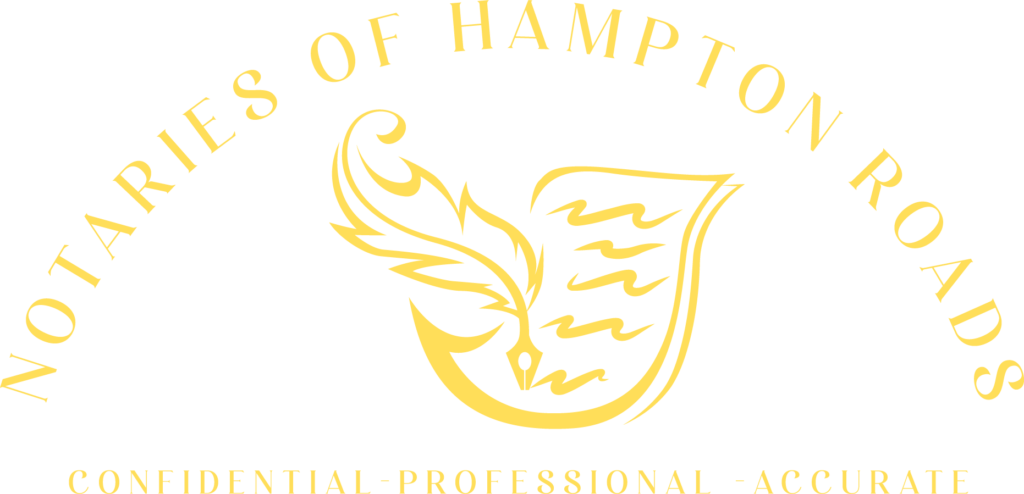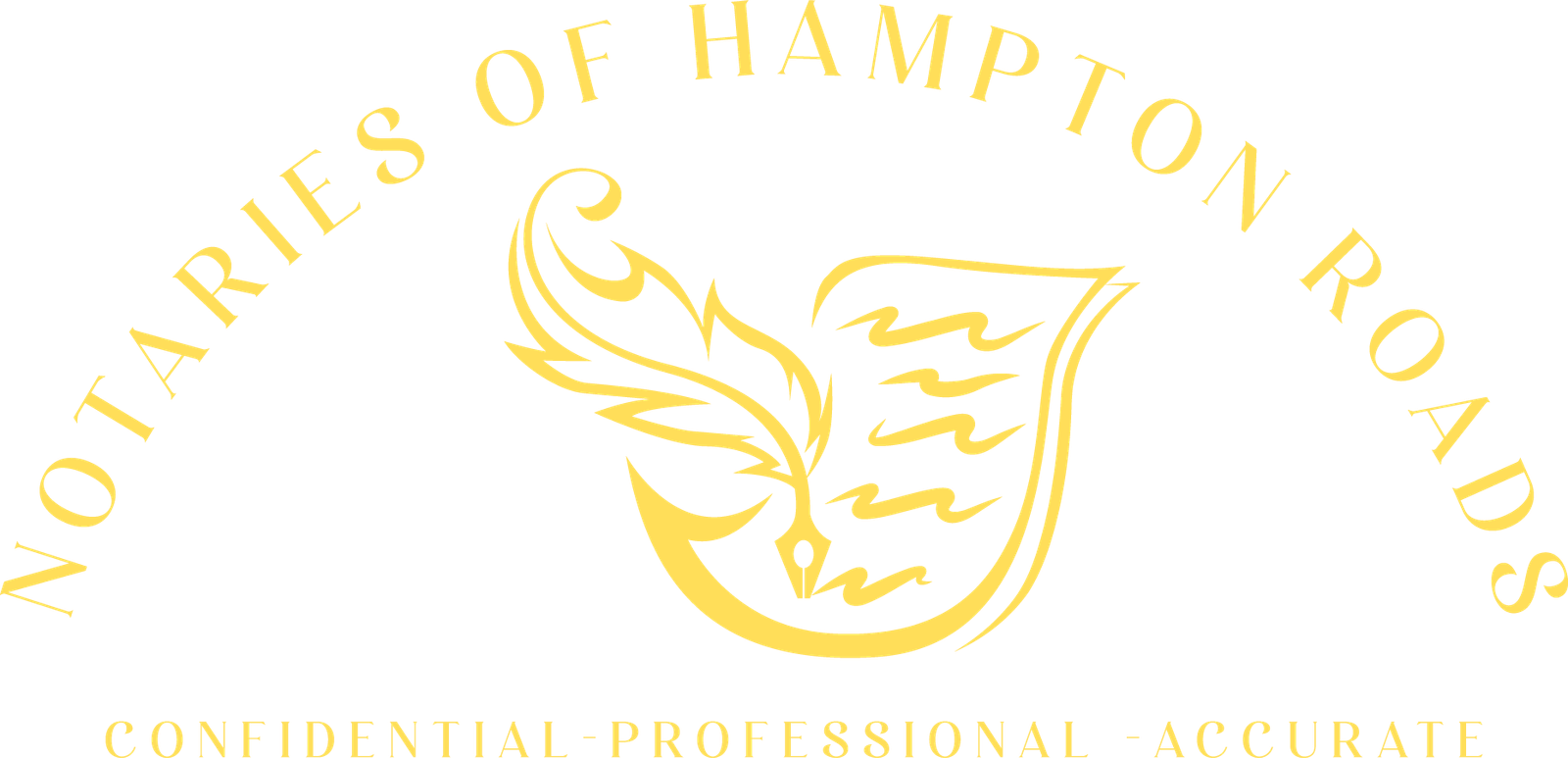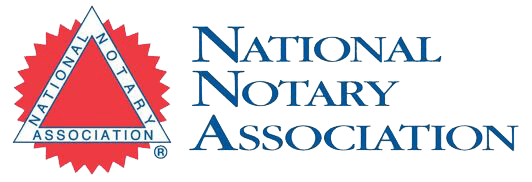Frequently Asked Questions
Here at Notaries of Hampton Roads, we understand that navigating the notarization process can sometimes raise questions. That’s why we’ve compiled a list of frequently asked questions to provide you with clear answers and guidance. Explore our FAQ page to find answers to common inquiries about notary services, document requirements, fees, and more. If you have additional questions or need further assistance, don’t hesitate to reach out to our team. We’re here to help simplify your notary experience.
A notary public is an official appointed by the state government to witness and certify the signing of important documents and administer oaths.
Common documents that can be notarized include affidavits, acknowledgments, deeds, contracts, powers of attorney, and wills.
While appointments are preferred to ensure availability, we also accept walk-in clients. Contact us to schedule an appointment or inquire about availability.
A valid government-issued photo ID, such as a driver’s license, passport, or state ID, is typically required for notarization.
Notary fees vary depending on the type of document and the complexity of the transaction. Contact us for a quote based on your specific needs.
Notarization involves witnessing the signing of a document and certifying its authenticity, while legalization involves authenticating documents for use in foreign countries.
Yes, we can notarize documents written in languages other than English as long as we can understand the content and verify the identity of the signer.
The duration of the notarization process varies depending on the complexity of the document and the number of signers. In general, most notarizations can be completed in a matter of minutes.
DISCLAIMER!
As professional notaries, we are committed to providing accurate notarizations and loan signings. However, please note that we are not attorneys and cannot offer legal advice. By law, we are prohibited from explaining or interpreting document contents, providing guidance on document completion, or advising on the wisdom of signing specific documents. Engaging in such practices would be deemed unauthorized practice of law and may result in legal consequences, including potential incarceration. For any significant queries regarding your documents, we strongly advise consulting your lender, title company, or an attorney. Your understanding of this limitation is appreciated.








